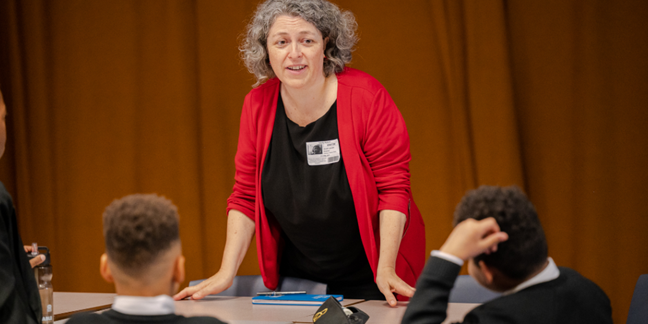May 25, 2022

By Dan Powell, Head of Neon at EngineeringUK
Neon is a website aimed at teachers. It helps them find quality checked extra-curricular activities with an engineering careers focus, as well as hosting careers resources and inspiring case studies of engineers. When we launched Neon we intended it to be used by both primary and secondary school teachers to inspire the young people they work with.
Secondary school teachers took to Neon straight away and we now have over 1000 secondary schools in the UK which have a teacher who uses the platform. However, we noticed last year that registrations amongst primary school teachers were not as good as we had hoped.
We know that engaging young people in STEM subjects at primary school is an important factor in them choosing a career in engineering, so we needed to find out why we weren't getting traction with primary school teachers.
Jenny Karlsson, the comms lead for Neon, and I decided to look into the reasons and placed recruitment of primary school teachers on hold until we had some answers. We commissioned research into the primary STEM landscape and spoke to a number of key players in the primary space. We worked with CarrickWorks and Chrysalis Research who produced desk research into the primary STEM landscape, and ran focus groups with primary school teachers. This gave us a great overview of what primary school teachers’ priorities are when they are thinking about arranging an extra-curricular activity for their pupils.
The desk research showed that in the primary phase it is important to:
- Broaden horizons, raise aspirations and challenge career stereotypes/’can’t do’ mindsets. This is particularly important in underrepresented communities in engineering where children are lacking positive careers role models. At this early stage, the emphasis tends not to be on choosing a career but on learning what options are available to them.
- Raise awareness of the diversity of STEM careers available to them and, in the process, increase the pupils’ general knowledge.
- Put STEM subjects into a real-life context by demonstrating how the pupils’ STEM learning has real-life applications outside the world of school.
- Identify and develop key skills needed for the workplace.
These differ from the secondary phase, which is more focused on thinking about a student choosing a specific career in STEM. Although of course positive role models, challenging stereotypes and raising aspirations are important across both!
The focus groups also helped us to clarify exactly what the issue was with Neon and why we weren't seeing the engagement with primary we were looking for. I could summarise this as 'Looks like a great site, but it's for secondary schools'! We came up with two key issues which we needed to address:
- Primary school teachers view Neon as a site for secondary school teachers, which also includes some primary content.
- The information we were showing on our listing pages for activities was useful for secondary school teachers, rather than primary. For example, we show the relevant Gatsby benchmarks in each experience, but these are not used in primary schools.
The next step was to work with a development agency to make the necessary changes. Following a selection process, we started working with Etch, an agency based in Southampton. Their Digital Strategist, Michelle Jacques, spoke to a cohort of primary school teachers who are registered with Neon to gather further insights. She created a survey to gather teachers' views which The Primary Science Teaching Trust kindly emailed to their primary clusters across the UK. Michelle then worked with the wider team at Etch to put together some ideas for an approach.
We really like the approach Etch delivered, and think it is a great solution to the issues we identified last year. Depending on their phase of education, Neon experiences now have a different visual identity, and they display different information for primary and secondary to help teachers assess an experience’s suitability.
What I find most important from Neon’s transformation is when a teacher logs in as a user, or enters their school name, the site will pre-filter to only show them experiences for their phase of education. What we hope is that all this means that primary teachers will think ‘Looks like a great site, it's for me!’
< Back to Blog



